REDAA currently supports 28 locally led research-to-action initiatives that improve evidence, tools and governance to help people and nature thrive. These projects take place across 25 countries and cover a diverse range of landscapes and ecosystems.
Project summaries
Advancing Indigenous Peoples’ rights in the forests of the Congo

Bamboo for reforestation and greener livelihoods
To combat deforestation and improve livelihood resilience in Madagascar, this programme co-produces research data and strategies with communities to develop sustainable and resource-based enterprises. It explores socially acceptable and ecologically safe ways to use bamboo as an alternative to hardwood for fuel and construction. At the same time it strives to prevent bamboo becoming invasive by identifying native trees for replanting.
Coastal restoration in Bangladesh
In the eroded coastal areas of Taltali and Kalapara Upazilas, Bangladesh, this programme supports Indigenous Peoples to strengthen land use, governance and climate-resilient livelihoods. It combines participatory research with mangrove restoration and sustainable enterprise development, targeting 5,300 direct beneficiaries.
Community researchers and local innovations for forest care and restoration in Viet Nam
Community-based research and action for sustainable land use in the Ethiopian Rift Valley
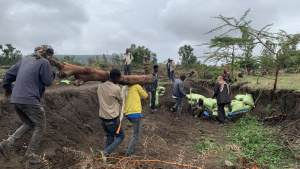
Community-led forest restoration in Sierra Leone and Liberia
The Upper Guinea Forest in Sierra Leone and Liberia is severely affected by agricultural expansion, illegal logging, mining and fuelwood collection, depleting biodiversity and threatening the livelihoods of rural communities that rely on forest resources. This programme combines research and community action to promote sustainable land use and forest conservation. Co-developing restoration strategies with local communities, it blends traditional knowledge and science to identify deforestation drivers and inform decisions.
Community-led restoration and land rights in the Sahel
In the Sahel, one of the most drought-affected regions globally, ecosystem degradation threatens rural livelihoods and increases poverty, malnutrition and conflict. Farmer Managed Natural Regeneration (FMNR) is a proven solution but faces barriers such as insecure land tenure, especially for women, young people, people with disabilities and pastoralists.
Improving value chains and ecosystem restoration through local agroforestry innovation in Viet Nam
Inclusive and diversified crop enterprises and restoration for forest-farm landscapes in Myanmar and Viet Nam
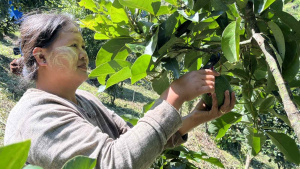
Innovative finance for ecosystem-based enterprises in Viet Nam
Rapid economic growth in Viet Nam has come at the cost of severe environmental degradation, resulting in biodiversity loss, pollution and climate vulnerability. This programme supports the scale-up of locally led ecosystem restoration by developing ecosystem-based enterprises (EBEs), led by women and young people, in peri-urban wetland and coastal mangrove areas.
Knowledge for improved food-systems and restoration in the Kenya-Tanzania boundary rangelands
Knowledge for wildlife, livestock and livelihood strategies in Namibia
Local citizen science for inclusive watershed management in the Philippines

Local credit management for increased agrobiodiversity in Tanzania
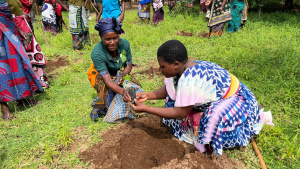
Locally managed finance for urban ecosystems in Southern Africa
Urban ecosystem degradation across African cities is worsening health, livelihoods and vulnerability to climate risks for millions of slum dwellers. This programme supports community-led restoration in Malawi, Zambia and Zimbabwe through the locally managed grant system Urban Ecostewards Grant Facility (UEGF). A co-developed research framework grounds the work in local knowledge and international standards, using research-to-action to drive advocacy and influencing policy.
Long fallow agriculture for improved management of coastal forests in Tanzania

Mangroves for enhanced livelihoods and climate resilience in Myanmar

Nature-based solutions for reducing wildfire risks and building climate resilience
Nepal’s escalating wildfires threaten the critical farm-forest-water nexus that sustains rural livelihoods, food systems and biodiversity and disproportionately affect smallholder farmers, Indigenous Peoples and climate-vulnerable communities. The ‘PunarUtthan’ programme addresses these risks by combining participatory risk assessment with action research to pilot tailored nature-based solution across four districts, benefiting 25,000 families and restoring 40 hectares of degraded forest.
Reorienting forest restoration with local knowledge and inclusion in Nepal

Scaling up locally-led forest restoration in Bangladesh
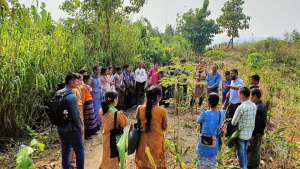
Smallholder research, agroforestry, natural regeneration and policy engagement in Rwanda
Smallholders restoring pollinators for improved livelihoods and climate resilience in Zimbabwe
Strengthening Indigenous land management for improved agroecology and wetland governance in Cambodia
Strengthening locally led restoration among farmer and pastoralist communities in Tanzania

Strengthening peatland stewardship in the Philippines
The Leyte Sab-a Peatland Forest is one of two major peatlands in the Philippines, yet this vital ecosystem is rapidly disappearing. Combined with extreme weather events, its loss is driving thousands of people in surrounding communities into poverty. This programme places those communities at the heart of nature stewardship by co-developing legal tools, strengthening governance and promoting ecosystem-based enterprises.
Supporting refugee and host communities to improve livelihoods and ecosystem restoration in Uganda
Tackling invasive species through community-based restoration in the Western Ghats
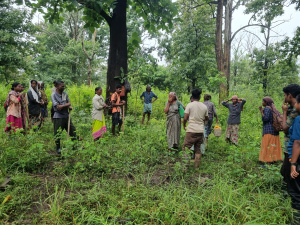
Urban wetland agroecology restoration in Bangladesh
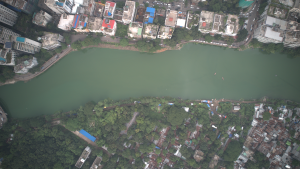
Young women leading environmental stewardship in West Kalimantan
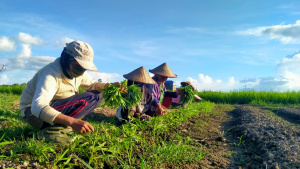
 Grant call 1: Inspiring locally led restoration
Grant call 1: Inspiring locally led restoration
 Grant call 2: Scaling up locally led restoration
Grant call 2: Scaling up locally led restoration